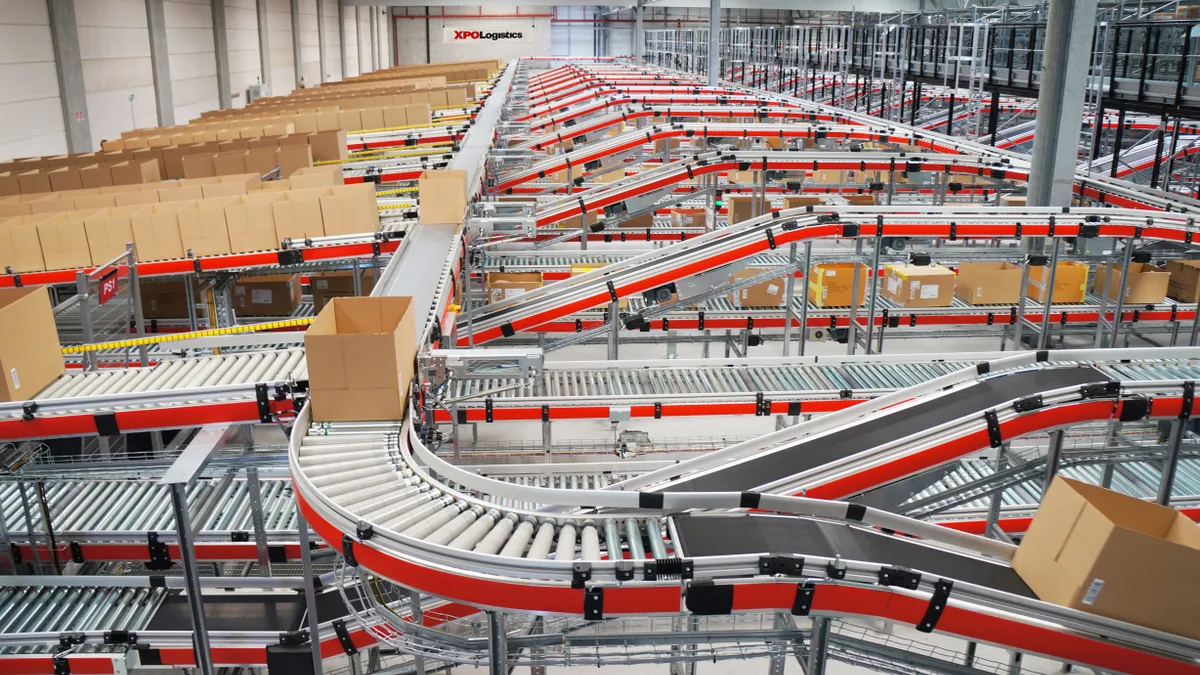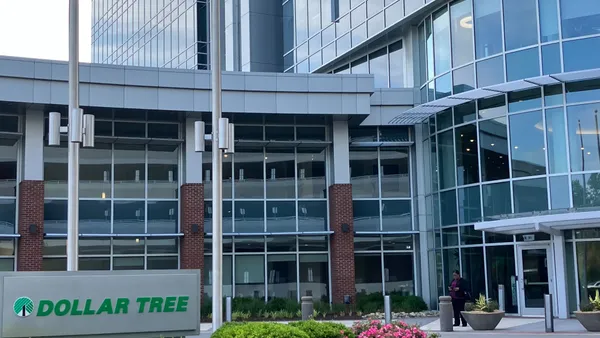Dive Brief:
- Retailers expect to outsource more of their online order fulfillment to third-party companies in coming years with 40% saying they currently insource the function entirely with their own operations and 34% saying they expect to continue to do over the next three to five years, according to a DHL survey of 900 "decision-makers responsible for logistics/supply chain management and e-commerce distribution strategy."
- In three to five years, 18% of retailers expect to entirely outsource fulfillment, up from 12% who said they do so currently. A mix of insourcing and outsourcing will remain the most common approach, with 48% of respondents who plan to use this breakdown, according to the survey.
- These survey results come at a time when the fulfillment process is more complex than ever before thanks to increased standards around shipping. "You're dealing with new inventory deployment challenges, you're dealing with a higher level of order management challenges, and then the idea of executing," Jim Gehr, president of retail North America at DHL Supply Chain, told Supply Chain Dive.
Dive Insight:
Deciding on the best e-commerce fulfillment strategy means considering a number of variables like the products sold by the company and how long the company has been around, according to Shay Scott, the executive director of the supply chain and operations programs at the University of Tennessee Knoxville.
"It's all about finding fit," Scott said. "Because there has been so much growth, companies have really just done what it takes to survive. And now as they're really taking a more strategic look at it they realize that, in many cases, their strategy needs to adapt."
Customer expectations have also gotten much higher thanks to e-commerce. Companies like Amazon and Walmart have whittled away at shipping times, now promising delivery as quickly as a single day in some cases. Keeping up with this requires a network of inventory close to the customers who are making the orders, which can begin to get expensive.
"That's not going to be all SKUs, which is another big differentiation," Gehr said. "It's the more commonly ordered items, so the ones with higher velocity, people expect to have those. When somebody orders something unique or something that isn't typically readily available they're okay waiting a couple extra days, that's okay. But if it's a common item, they really want to get it the next day."
Working with a 3PL can provide this network of distribution centers around the nation, if not the globe, DHL points out in its report. (It should be noted that DHL is a 3PL that does this work.)
Shorter delivery times also require a more efficient warehouse, both Gehr and Scott said.
"Historically, warehouses would receive an order and they ship it out 48 hours later," Gehr said. "Today, warehouses receive an order and it's ready to ship in two hours. That's a very complex process."
Outsourcing fulfillment to a 3PL comes at a cost, which will vary depending on what's being shipped and the volume of shipments, Scott said. Once a company reached the size of a company like Amazon, though, it can make sense to invest in in-house fulfillment operations. But even a special case like Amazon still relies on 3PLs to aid in transportation.
"They're taking very much a hybrid approach," Scott said of Amazon, "because they have just unparalleled need for capacity because of their scale."
While the exact e-commerce fulfillment strategy will differ from company to company, one thing is clear: Companies know they need to sell online and fulfill those orders quickly. Now it's just a matter of figuring out whether to go with insourcing or outsourcing for fulfillment operations. The answer might be a mix of both.
This story was first published in our weekly newsletter, Supply Chain Dive: Operations. Sign up here.














